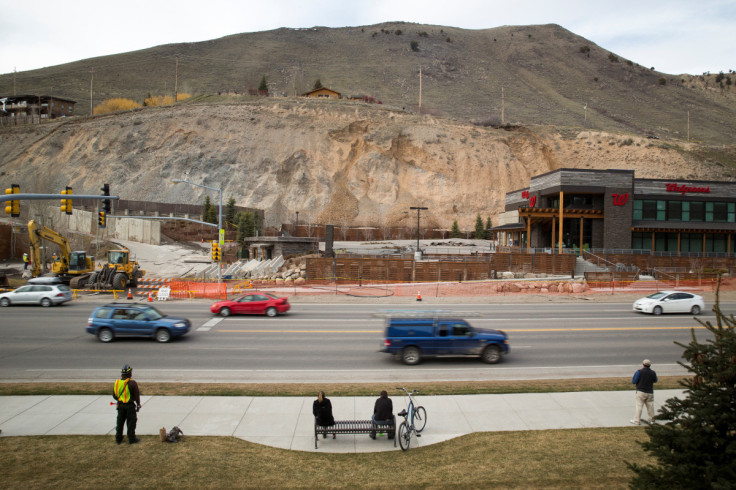Climate Activists To Press Fed At Jackson Hole Conference

Climate activists will stage a series of colorful protests at the Federal Reserve's annual Jackson Hole central banking conference that starts Thursday, intent on pressing the Fed to address climate change and move the U.S. economy away from fossil fuels.
"Our presence will remind the Fed that real people are suffering from the real-life economic impacts of the climate crisis, and that this very real human cost has to be reflected in the Fed's actions going forward," said Emily Park, an organizer with climate group 350.org.
Central bankers from around the world attending this year's Jackson Hole Economic Symposium are expected to discuss academic papers and challenges around policy constraints as they tackle high inflation. It unclear how much attention will be on climate risks.
The climate activists' demands include faster action on requiring banks to measure their natural disaster vulnerabilities and potential disruptions related to the green energy transition.
But the demands also extend beyond what Fed policymakers say are their mandates, like requiring banks that lend to oil and gas companies to tie up more capital to safeguard against losses if the transition away from fossil fuels is more disruptive than anticipated.
Park said she hopes the actions - which include people holding signs calling for a Fossil Free Fed along the road from Jackson Airport to Grand Teton National Park where the meeting takes place - will impress on Fed Chair Jerome Powell and fellow policymakers the need to focus on environmental threats.
The Fed has long shied from wading into climate matters, a hot-button U.S. political issue. It was the last major central bank, for instance, to join the Network for Greening the Financial System. Peers like the Bank of England and European Central Bank perform annual climate stress tests on the banks in their jurisdictions.
It has instead focused on understanding the risks climate change and the transition away from fossil fuels poses to the economy. But the Fed has largely ruled out a more aggressive role in driving investment toward green energy, as the European Central Bank has begun to do, and as activists would like.
That is in line with many Republican members of Congress who balk at the central bank taking an active role in mitigating climate risks. Activists and some Democrats feel such a stance should at least be under consideration. The Fed is accountable to Congress.
The Fed has two internal groups and has partnered with U.S. regulators to research potential vulnerabilities in the banking sector and the larger financial system.
Powell has also indicated the Fed is exploring how banks can cope with climate risks like rising temperatures and weather disasters, including developing climate stress scenarios already in use by other central banks.
Any focus on climate will work with the Fed's mandates to achieve maximum employment and price stability, Powell has said.
Copyright Thomson Reuters. All rights reserved.





















